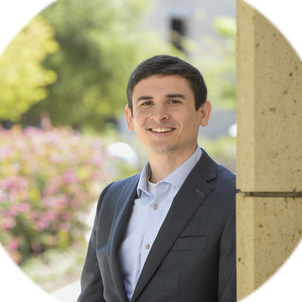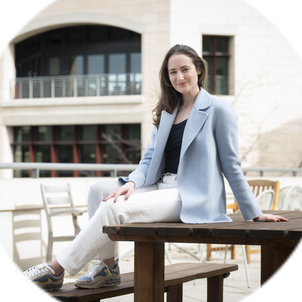I was a 21-year-old student at University of Central Florida, which is not far from Kennedy Space Center in Cape Canaveral. My dad really wanted to see the SpaceX launch because they were sending the first astronauts into orbit from American soil since NASA’s space shuttle program ended in 2011. It ended up not happening that day, as it was pretty rainy and not ideal weather, so really, it shouldn’t have been so memorable, but it was. That was the moment I realized space is important and I should do something with it.
I had been studying mechanical engineering prior to switching to aerospace, so it wasn’t a huge pivot. Currently, I work in Stanford’s Space Environment and Satellite Systems (SESS) lab. My focus there is all about tracking the things we put up in space. There are big things we can track, like dead satellites and old rocket bodies, but we can’t really track smaller objects that have potentially formed from two things in space colliding and exploding everywhere. I’m trying to develop methods to track the smaller orbital debris because it can pose a threat to our access to space in the future.
In the space environment, there’s a lot of plasma, and the objects we’re trying to track can create disturbances in this body of plasma by sending waves through it. We already know how to detect waves in plasma using radars on Earth, but some particles are so small that they don’t necessarily get picked up by radar. I’m trying to develop a method that can detect those waves. We may have to send something into space, or, if we are already detecting those waves on the ground and just don’t know that we are, I want to find a way to isolate them. Right now I’m developing code that predicts how the waves we’re looking for interact with other waves that we know exist in the space environment. If we can identify unique behavior, then we can go to ground radars or send something up there to look for the behavior we’re predicting.
Whenever I work on a problem, I’m expecting something to fail at some point. I’ve found that trying to avoid failure ends up wasting a lot of time. I remember once as an undergrad, I took an engineering statics class and I was too embarrassed to ask a question about something that seemed really simple, and when I took my first exam, I failed it because of the question I didn’t ask. Ever since then, it’s been second nature for me to be OK with not fully getting it, because it’s better to do that in the learning process than when there’s a high-stakes situation that you need to execute on. I’ve learned that not being afraid of failure, and accepting it as part of the process, is imperative to getting a PhD.
Surprisingly, I’m not super into sci-fi. Space is cool, but it’s also the source of a lot of my stress, so it’s nice to enjoy other things. I really like inspiring, feel-good stories. I’m a big Ted Lasso fan. In Ted Lasso, there’s a sign hanging in the locker room that reads: Believe. It reminds the team to believe in themselves and their work when they need motivation. If I had a sign like that mine would read: Carry On. There’s a lot I’m looking forward to in the future.
Related spotlights

Thomas Colburn

Kayla Patterson

